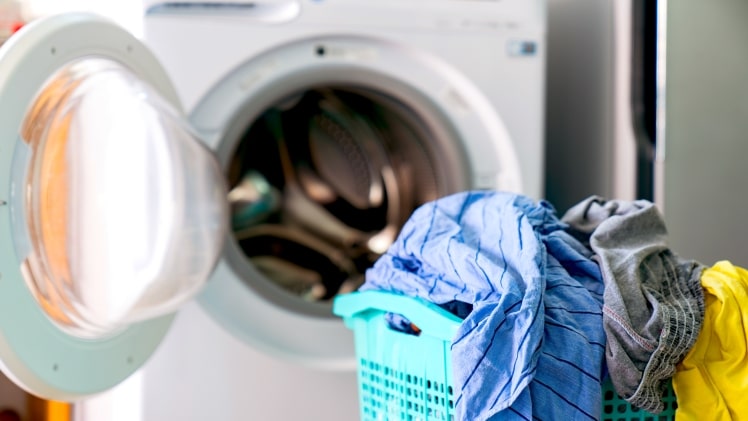Do your clothes appear dingy and dull coming out of the washing machine? Does your laundry feel harsh on your skin? If that’s the case, you’re not alone. Issues with laundry are not uncommon and if you are experiencing these issues, the problem could be the water in your home.
The good news is you can get great laundry results without breaking the bank. Read on to learn all about hard water, how it affects your clothes and what measures you can take to overcome any laundry challenges that come from living in a hard water area.
What is hard water?
Water containing high mineral content such as calcium and magnesium is called hard water. Since water is a universal solvent, it picks up minerals from rocks inside earth’s crust and everything it comes into contact with. Higher the concentration of these minerals, the harder the water.
If you live in a hard water area (area high in limestone content), your water is likely to contain high levels of calcium.
On the other hand, water containing only small amount of mineral content can be referred to as soft.
If you are not sure you live in hard water area, keep an eye out for these tell-tale signs in your home.
- Spots on your dishes & glassware
- Soaps & shampoo don’t produce enough lather
- Chalky deposits on your faucets & taps
- Deposits on sinks & toilets
- Dry & itchy skin
- Dull & unmanageable hair
Simple DIY Hard Water Test
If you have any reason to suspect hard water is sabotaging your laundry, you can confirm this with a simple test at your home. This test can be good indicator of hardness in water but will not tell you exact level of water hardness.
Start with a clear container or a transparent plastic bottle and fill it up with water. Add a few drops of liquid soap into your container and shake it vigorously to form bubbles.
If the container has good amount of bubbles at the top and the water below is clear, you likely have soft water.
On the contrary, if your container does not have much bubbles and the water appears to be cloudy, you have a hard water problem.
This simple test may work well as a basic assessment, but isn’t an accurate way to determine water hardness levels. You can either get your water tested from am accredited laboratory or use a hard water testing kit which includes test strips. Major home improvement stores and many online retailers sell additional test kits that may provide a more comprehensive water assessment.
How does hard water impact your laundry?
Hard water does not mix well with detergent. The dissolved minerals hamper the effectiveness of many cleaning products. As a result, soap scum gets left behind.
Over time, this scum can turn your laundry grey and you may also notice white streaks on your coloured clothes. The result is dingy looking clothes that don’t feel completely clean after they come out of your dryer. The residue on your clothes will even attract and hold more dirt as you wear them.
Not only does hard water ruin the appearance of the clothes, it also makes a difference in how it feels against skin. The soap scum that gets left behind turns laundry feel stiff and crusty. When this happens, fabric is less likely to flex, creating more friction that causes unnecessary wear-and-tear on your laundry.
Washing clothes in hard water could lead to dry and irritated skin. This could even worsen eczema.
And lastly, to achieve better cleaning, you may have to resort to using hotter water and extra detergent. But more detergent means more residue and increased cost of using your washing machine.
Fix Laundry Problems with Soft Water
Dealing with hard water can be frustrating and expensive. Not only does it affect your laundry but can also wreak havoc throughout your house by destroying your appliances and increased energy bills.
The only fix to this problem is to soften the water being used in the home. Soft water is ideal for cleaning, washing, and bathing. Installing a water softener softens the water coming to your house and delivers soft water free from minerals.
Water softeners work on ion-exchange principle which replaces hardness causing minerals with sodium ions. The systems can be installed by a water treatment company or a local plumber to the mains water supply. This delivers soft water not just to the washing machine but to every faucet in your house.
Everything involving water gets better with soft water- laundry, hair, skin and appliances. A water softener eliminates the need to repair the appliances frequently and saves almost €600 every year.

